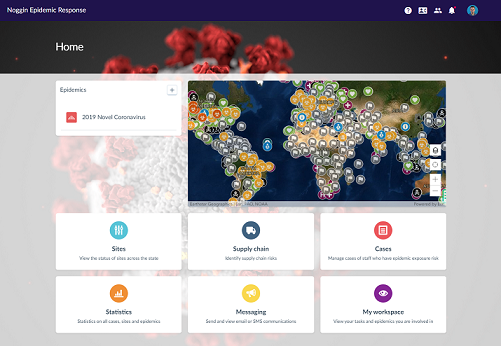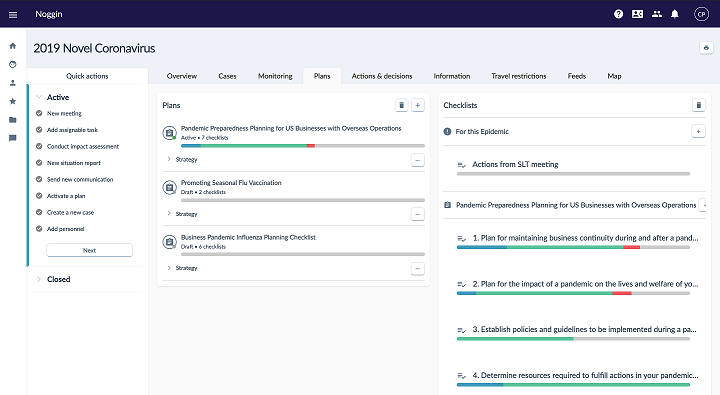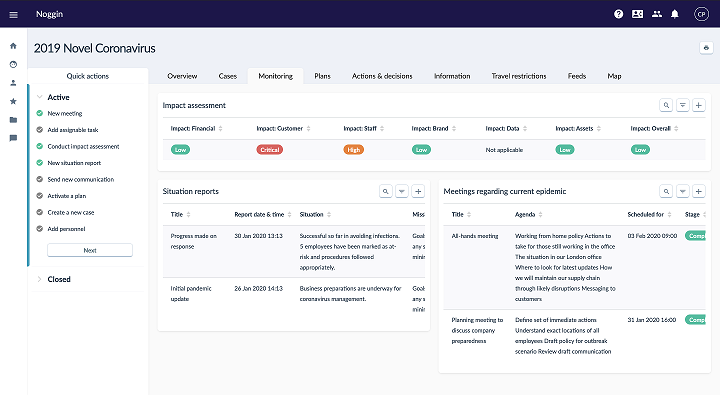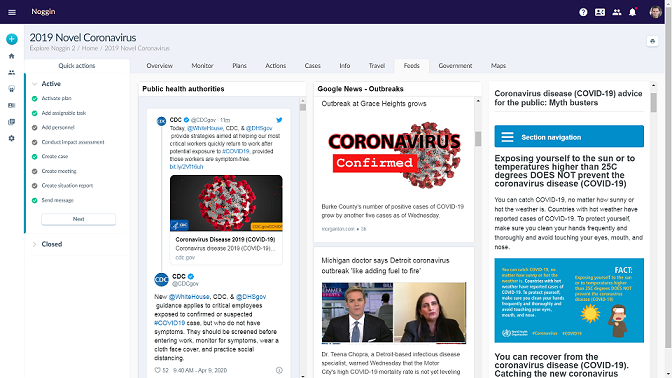
Since the outbreak of the COVID-19 pandemic, universities have rapidly been shifting classes online to reduce the likelihood of the virus’ transmission and to ensure the continuity of teaching and learning.
As the higher education sector continues to navigate this uncertain time, an Australian crisis management tech firm has been helping them to keep students safe, manage international enrollments, maintain duty of care for employees and ensure business continuity.
Noggin, which has been helping organisations improve incident management and organisational resilience since 2009, worked with Rural Fire Service to assist in the crisis management response for affected and at-risk communities, and more recently released a module to help Australian businesses prepare for, and manage their response to, the COVID-19 pandemic.

The Epidemic Response Module (ERM) encompasses solutions for business continuity, crisis management, travel risk management, and worker safety interventions.

Noggin CEO James Boddam-Whetham said there are some important opportunities for universities to leverage during this crisis.
Faced with the COVID-19 crisis, colleges and universities were some of the first actors to close down physical operations completely and migrate online,” Boddam-Whetham told The Educator.
“They were uniquely positioned to, because of the sector’s [including primary and tertiary institutions] embrace of digital learning techniques”.
Boddam-Whetham said the sector now has an opportunity to be ahead of the curve, when it comes to online learning, embracing new models of engagement, for instance, that might be models for corporations.
“We’ve seen teaching centers within educational institutions, in particular, surmount their students’ physical, emotional, and technological barriers to access, which in my world sounds like an important story of organisational resilience,” he said.

Boddam-Whetham said the fact that Noggin has been working closely with schools on crisis and disruption management for so long means that the conversations the company is having with schools about the benefits of the COVID-19 Response Module are natural extensions of that support.
“School leaders and principals reflexively grasp the value of having one robust system for handling both the risk of school interruption as well as the reality,” he said.
“The fact the Noggin system is available on mobile devices becomes even more important for school leaders in this moment of remote work and fragmented workplaces”.

Boddam-Whetham said that for schools weighing the decision to close, in particular, situational awareness of how COVID-19 is impacting their communities is critical.
He said universities that already have online learning systems in place are perhaps best positioned to navigate the serious learning challenge that face them.
“Our free Noggin COVID-19 Response Module helps to support, providing universities a more efficient means to navigate the other aspects of the crisis lifecycle, activating and accessing plans on their mobile devices, better situational awareness which might be important for international study/travel commitments, and case management for affected staff,” he said.
“Finally, technology gives universities just a better way to issue internal crisis communications to staff, students, and parents who have no precedent for the current situation”.


